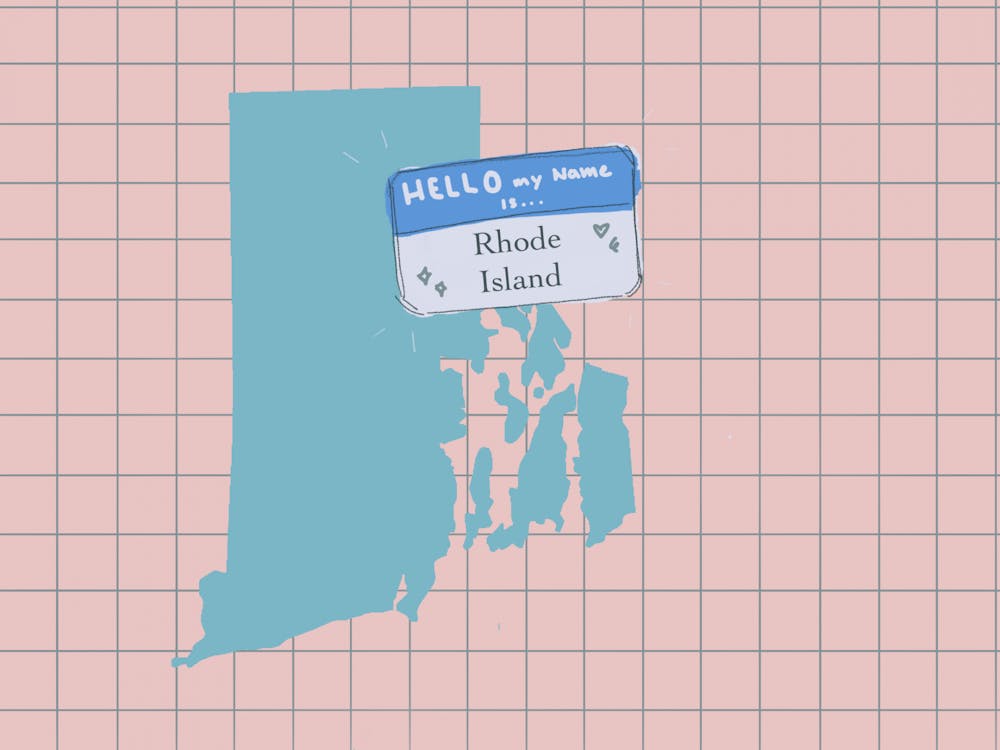Like many of my peers, I've been hunkering down in my home state, Rhode Island, for remote learning. While voting this November, I was asked to vote on changing my state’s name on the first ballot proposition question.
Rhode Island officially held the controversial name, "State of Rhode Island and Providence Plantations," until this year. The referendum to remove “Providence Plantations” was approved by about 53% of the vote, and as CBS explained the name has “long been criticized for its slavery connotations.”
“Providence Plantations” came from the land settlement of the state founder, Roger Williams, which included the state capital, Providence. Professor Lindford Fisher of Brown University says, “So even if we want to say, well, it wasn't with regard to slavery, it has a strong settler colonial context of expanding and settling upon Native lands.” Democratic state Rep. Anastasia Williams of Providence says, “If you don't believe that that word has a life, a real dark painful life, then you're seriously mistaken.”
Rhode Island has a long history with slavery detailed by the John Carter Brown Library. In 1652, the state ratified a law that abolished slavery, however it was never enforced. Rhode Island had more slaves per capita than any other state in New England and was a key state in the transatlantic slave trade.
This name change has been considered many times. Earlier in 2020, a petition to remove the end of the state’s name garnered 10,000 signatures. CBS reports the petition stated: “If you ask anyone what's the first word that comes to your mind when you [read] plantation? They'll likely say slavery, and to every African American it holds a painful memory and represents the very real systematic racism in our government.” In 2010, this same referendum appeared on the ballot, however was opposed by almost 80% of voters.
Even today, many are debating the decision to change the state’s name.
Opponents to this referendum claim that "Providence Plantations" "is a reference to colonies with agricultural economies."
Patrick Conley, Rhode Island’s historian laureate, argues that “plantation” only refers to the founder’s land. Earlier this year he said, “What does [the name change] accomplish? Does that advance race relations in America? In the world? It is what it is. History is what it is. You don't whitewash history. That is an act of, frankly, stupidity.”
Williams, who helped get this question on the ballot, argues, ”Nobody is trying to eradicate the history that has been in play, but we need to present the true and accurate history of it entirely, as opposed to just bits and pieces.”
Another supporter of the name change is Gary Dantzler, Founder and Executive Director of Black Lives Matter RI: "I’m very impressed. It’s monumental to us as African Americans..Rhode Island is changing. Hugely. It makes me feel great that there is room for change.”
This debate in Rhode Island lends itself to the greater national conversations on the significance of official names in America and often their ties to slavery.
Admittedly, after 20 years of living here, I was under the impression my state was officially the "State of Rhode Island," and many of my fellow Rhode Islanders were taught or made that same assumption for many decades. Including this ballot question has potentially brought forth new information, prompted deeper exploration and hopefully education on our state's history, and opened up conversations for many Rhode Islanders.

